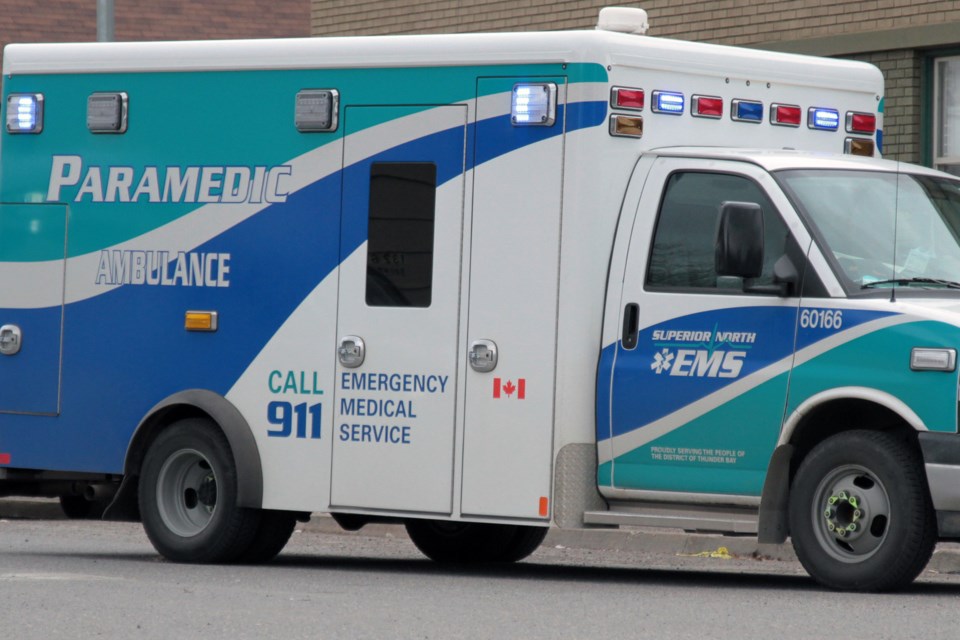THUNDER BAY — Specialized facilities to treat first responders suffering post-traumatic stress injury are "crucial" for the recovery of paramedics harmed by what they see on the job, says Shane Muir, chief of Superior North Emergency Medical Services.
On Friday, the province announced funding for Canada's first dedicated PTSI centres for first responders.
They will both be built in the Toronto area, but Muir said paramedics from the Thunder Bay area will have access to them.
The services will include mental health assessment, rehabilitation and residential treatment, virtual care, 24/7 crisis support, peer support and navigation support.
"I think it's incredibly essential," Muir said in an interview Monday. "What we are seeing on an operational level, any given time, is 10 to 12 per cent of our staff could be off work for occupational stress injury."
PTSI is a non-clinical term that encompasses a range of mental health injuries, including some operational stress injuries (OSI), clinically-diagnosed post-traumatic stress disorder (PTSD), anxiety, and depression.
Muir said Superior North EMS started seeing a spike in these cases in 2016, and that 2023 was a particularly bad year.
"That's when we really started implementing our own internal resources...and got a team of dedicated clinical psychologists that have appointment spots available basically the next day for any of our paramedics."
Muir said Superior North EMS also has a peer support and wellness coordinator who's on full-time with other support personnel behind him.
That's helped lead to a reduction in time lost due to operational stress, but he said the specialized facilities will take service to another level.
"They [will] have an understanding of the first responder culture. Not necessarily every practitioner out there is going to understand what first responders are actually dealing with, and what their needs are...Where we're really getting that advantage is people who know the ins and outs of what paramedics are dealing with, what other first responders are dealing with, and be able to leverage that knowledge to increase the level of care they're receiving."
Muir described what the 230 Superior North EMS paramedics perform on a daily basis as "an incredibly stressful job."
One of the new treatment centres will have 40 residential beds to connect first responders.
The Ministry of Health estimates up to 23 per cent of first responders and public safety personnel suffer from PTSI.
Runnymede Healthcare Centre will operate both facilities, which will serve an estimated 1,500 workers each year, including paramedics, police officers, firefighters, correctional officers and frontline healthcare personnel.
Mark Baxter, president of the Police Association of Ontario, called the project a significant step toward addressing the unique challenges faced by Ontario's sworn and civilian police personnel.
"These facilities will provide the tailored care and support our members need and deserve," he said.
